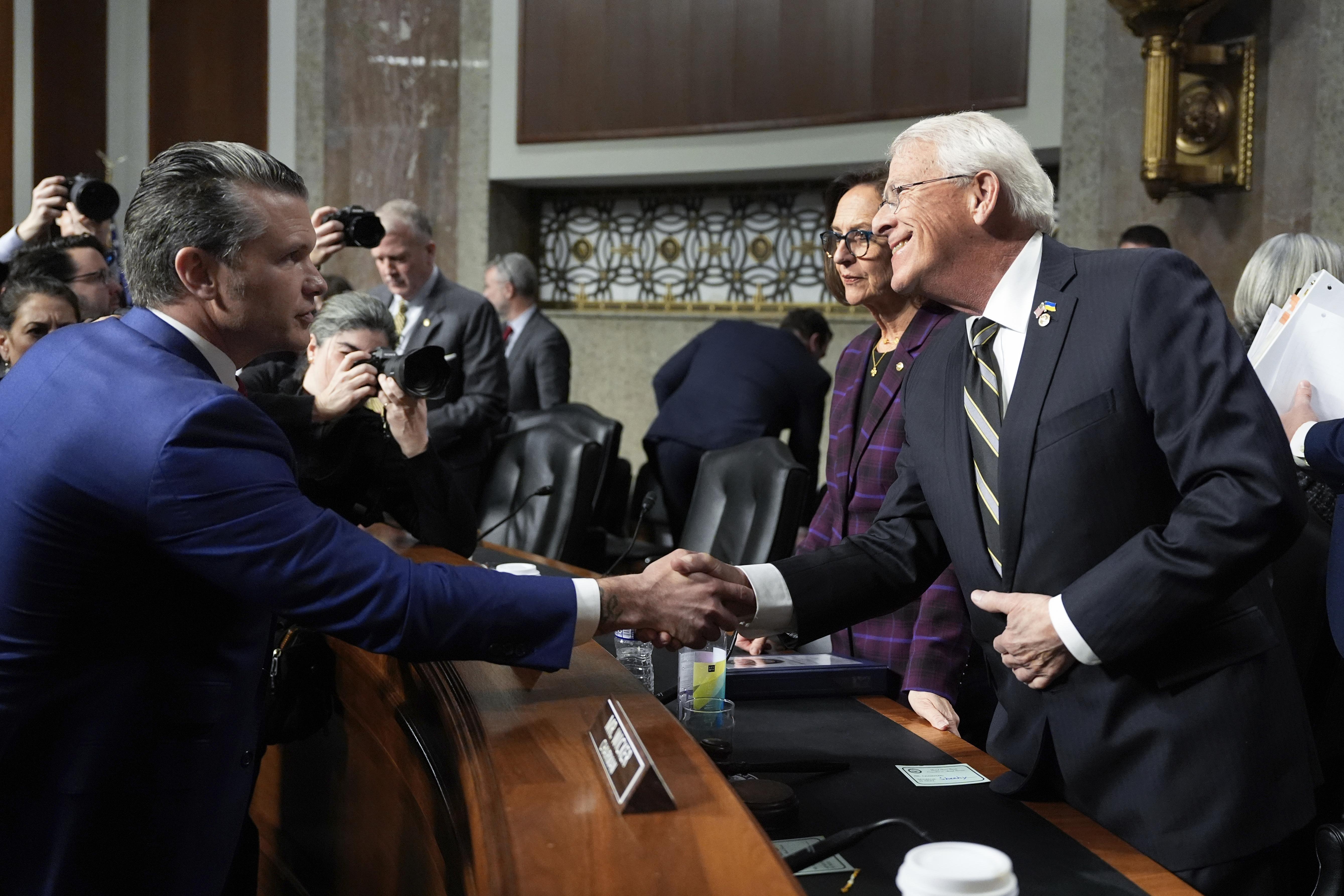The former House member and state lawmaker assumed lead of the chamber’s Armed Services Committee, which oversees the entirety of the Department of Defense, earlier this year.
One of his first public appearances in the role was the fraught confirmation hearing of Pete Hegseth, a former Fox News weekend host, National Guard veteran and President Donald Trump’s unorthodox pick to lead the Defense Department.
A number of GOP Senators, including Wicker himself, were initially skeptical of Hegseth's qualifications for the position, as well as past reported misconduct. But the self-professed military reformer, alleged to have abused alcohol on the job and numerous women in his personal life, was confirmed in an unusual, 50-50 vote thanks to the tie-breaking vote of Vice President JD Vance.
Questions over whether the U.S. will continue its support for Ukraine, now approaching nearly three years since a full scale invasion by neighboring Russia, have only grown since the recent Presidential transition, with Hegseth at the center.
As a preview to the annual Munich summit, the Defense Secretary shocked both European and NATO allies -- and likely his Russian counterparts -- by announcing the U.S. would not accept Ukraine as a NATO member, nor guarantee its return to pre-war borders, as a position in hypothetical peace talks.
He also called on European countries to fill the void of training Ukrainian forces and providing troops on the ground left behind by a likely U.S. departure.
Speaking with the media outlet Politico in Munich only days after those comments, Roger Wicker says he hopes the country sticks to its commitment to support Kyiv – both with arms and with more funding.
“They are the victims of an unprecedented aggression that is going to continue. And I guarantee you if Ukraine should fall, this doesn't stop. I'm absolutely comfortable with talks being held, but not just any deal to stop the fighting,” he said, referring to Hegseth’s now-backtracked revelation of Washington’s negotiating positions with Russia.
“The west, including the United States and Canada, should have given Ukraine everything they asked for and let them win. Russia is taking [thousands] of casualties a month -- I don't know how long they can stand that. So this idea that somehow Ukraine is barely hanging on against this superpower is not exactly correct. We shouldn't rush toward any kind of negotiated peace,” said Wicker.
As of last month, the U.S. has provided more than $60 billion in aid to Ukraine since the war's onset in early 2022. But casualties on both sides have continued to mount in a grinding stalemate, and Russian forces now occupy roughly 1/5th of Ukraine’s territory.
Part of Hegseth’s suggestion that the U.S. pull a considerable amount of soldiers from Europe was met with particular derision by several prominent European leaders, including German Chancellor Olaf Sholz and French Prime Minister Emannuel Macron.
The latter suggested a summit later this month in Paris solely for European leaders to discuss ensuring their own security in a changing geopolitical landscape where Washington, a decades-long ally with much of the continent, seems to be redirecting its attention to the Americas, and turning its diplomatic regime into one of transactions.
Recently-confirmed Treasury Secretary Scott Bessent traveled to the Ukrainian capital just last week, seeking to iron out a deal between Kyiv and Washington in which Ukraine would cede a 50% interest in all of its mineral rights in exchange for retaining U.S. aid and military presence. Officials from both sides are reported to still be in negotiations, with President Trump saying previously he's seeking compensation for both past and future support of the war.
Although he supports it, Wicker remains unsure if NATO membership for Ukraine, cited by Russian leader Vladimr Putin as a pretext for his invasion in Feb. 2022, will happen soon. He instead sees a situation in which the U.S. and its European allies agree to defend the country under a separate agreement, following a possible cease fire in the conflict.
But he also warns that comments like those Hegseth made regarding possible peace talks run the risk of emboldening Putin in what Wicker says is a larger conflict with Europe itself.
“Everybody knows, and people in the [Presidential] administration know, that you don't say before your first meeting what you will agree to and what you won't agree to... I was puzzled and I was disturbed by it.”
“The United States is in danger of getting a reputation. Solemnly promise the Afghans we're going to have their back, there's a generation of little girls who got to go to school, now there are no little girls in school anymore. When we give our word, we ought to keep it.”




